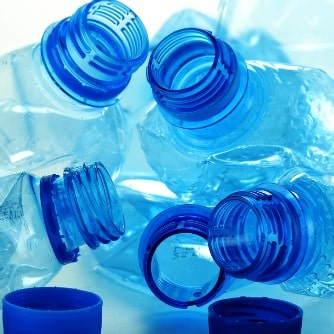A new study has determined that bisphenol S (BPS), a common substitute for bisphenol A (BPA) in plastics, may boost breast cancer aggressiveness by acting as a chemical that disrupts the endocrine system. The findings were recently presented by the study’s co-author, Katie Aleck, at the Endocrine Society’s 99th annual meeting known as “ENDO 2017”. Aleck is a research assistant at Oakland University.
About the Study
The project was led by Sumi Dinda, Ph.D., an associate professor at the Oakland University of Health Sciences in Rochester, Michigan. Dinda’s team tested BPS within human breast cancer cells. BPS is used in polycarbonate hard plastics as well as thermal paper receipts, currency bills and products that have been touted as BPA-free. Dinda’s group analyzed the effects of BPS in relation to estrogen receptor-alpha as well as the BRCA1 gene. The majority of breast cancers have been found to be estrogen receptor positive. About 60 percent of women who inherit the harmful mutation within the BRCA1 gene endure breast cancer.
Dinda’s research group used two breast cancer cell lines derived from women who have estrogen-receptor-positive cancer in the breast. The team exposed cancer cells to numerous BPS strengths along with an inactive substance that served as a control. Dinda’s group also treated breast cancer cells with estrogen known as estradiol. Finally, they blocked BPS-induced proliferation of cancer cells via treatment of cells with anti-estrogen drugs that are designed to block estrogen’s effects on estrogen binding proteins (also referred to as estrogen receptors) within breast cancer cells.
Study Results
It is known that BPS disrupts the endocrine system and poses numerous health risks. Unfortunately, BPS is not a safer alternative to BPA. In fact, BPS shows similar estrogen-oriented behavior just like BPA. The study shows that BPS is a powerful endocrine disruptor as it acts like estrogen within breast cells. The research team determined BPS multiplied the number of breast cancer cells.
When compared to the control, BPS and estrogen increased protein expression in BRCA1 as well as the estrogen receptor after 24 hours. When BPS treatment was applied for six days, the breast cancer cells within each cell line advanced by 12 percent at the study’s lowest dose of 4 micromolars. The breast cancer cells increased by 60 percent when a dose of 8 micromolars was applied.
Dinda states that his team’s findings suggest that BPS actually causes breast cancer to be more aggressive. He acknowledged that additional studies of BPS in breast cancer cells will be necessary for confirmation. Dinda also suggested that a woman with a mutated BRAC1 gene who uses products with BPS will face a heightened risk of developing breast cancer.




